ANJALI BHUSHAN ON THE AMAZING LOST STORY SHE TELLS WITH HER DOCUMENTARY MY HOME INDIA
by ASJAD NAZIR
This year’s London Indian Film Festival (LIFF) has super cinema ranging from feature films and classics to interesting documentaries like My Home India.
The fascinating Anjali Bhushan-directed documentary revolves around a little-known humanitarian story about a Polish ambassadorial team in Mumbai. The team, supported by a local Maharajah, dispatched a convoy of food relief thousands of miles away to Soviet Siberian labour camps where Polish women and children were starving. Then how they returned with 5,500 women and children who found refuge and welcome in India.
I caught up with Anjali to talk about the documentary, an extraordinary lost story and cinema.
What led to My Home India premiering at LIFF?
This film was long in the making because it was mostly self-funded. The riveting response we received at the first screening hosted by the Polish Consul in Mumbai, got us a 4.5 star in our very first review, which was reported in The Free Press Journal. I reached out to my old friend Naman Ramachandran with a screener to see if he would write about it, but he, without even acknowledging my email, shared it with (LIFF director) Cary Sawhney. I got an email from Cary congratulating me and telling me how he cried watching my film. I, in turn, cried reading his email. The next day we were formally invited as an official selection.
Tell us about My Home India?
The film is a journey back into time where a busload of old Polish men and women go looking for their homes in India. They recount their childhood in India, post Second World War and find what is left of their Indian homes, and cherished memories. This journey is juxtaposed with an untold story in history, where through personal memories we understand the emotional realities of finding a home away from home. When Poland was annexed by Russia, millions of Poles were taken to Siberian labour camps. When amnesty was declared the survivors were asked to leave, but had no place left to call home. Through an arduous journey, a few thousand survived and found their way to India.
How did it happen?
This expedition was funded by the Polish government in exile represented by Eugene Banasinska, the Consul General of Mumbai and his charming wife Kira Banasinska, who never took no for an answer. The film is a salutation to Kira, who became a Red Cross soldier and helped house and heal thousands of Poles in India in the 1940s. She lived to be 102 and became an Indian citizen.
What was the biggest challenge of making it?
There were so many challenges. I don’t know why or how I made it. I had no money, no resources, and quite like Kira, things just came together because my motivation was so strong. The team became like family and came together, committed to telling this rare and beautiful story. I think funds, equipment and footage of archives were the big challenges, yet somehow we smiled through it all. We managed to shoot in Hyderabad, Kolhapur, Mumbai, London, Ireland and Krakow with a fantastic crew. For all of us, it was a matter of national pride to tell this story.
Did you learn anything new making this film?
I learned a lot of things. The one biggest thing I can share is that one must always live in the now; this is how the children of Valivade survived. Despite losing so much, they are happy as they live in the moment. Kira survived and was happy against all odds because she quickly learned the trick of living in the now.
Who are you hoping connects with the film?
I hope each and every person of all generations connect with the film. People across the world are unaware of the fact that when Poland was annexed it was not on religious ground. Poland was annexed because it was a rich vibrant culture, which was prosperous and had a great aggregation culture. After annexing Poland, Russia took away the land that was primarily aggregated as it was needed to fuel the building of the USSR. Generations must know what happened and that there is an inspiring story in the middle of all this turmoil where people like Kira saved refugees, unconditionally.
How much are you looking forward to My Home India screening at LIFF?
I am super excited and really looking forward to it. I love it that we will have three screenings all over London for different audiences. This is our intentional premiere.
What can we expect next from you?
As a director, I am hoping to shoot my fiction film Ishqa soon in London. I have other scripts ready for India and the international market. I have a unique understanding of world cinema coupled with Bollywood and see that as an asset. My next documentary is something I am still developing. My Home India is, in a sense, my research for a fiction film on Kira.
What is your favourite film?
A Trick Of Light by Wim Wenders and Amy by Asif Kapadia. I also love all the films by Federico Fellini and Ingmar Bergman. David Lean just takes my breath away.
Who is your filmmaking hero?
David Lean is my all-time filmmaking hero and his every film is a masterpiece. I also love the ease and suave in the work of Guru Dutt.
Why do you love cinema?
Because cinema is curative, empathetic, powerful and has the limitless strength to change the world. I love it because it’s pure emotion. I love cinema because it is an imitation of life, edited to make you feel. Cinema is a way of feeling the divine. Cinema is life.





 LONDON, ENGLAND - JUNE 22: Baroness Floella Benjamin speaks during the unveiling of the National Windrush Monument at Waterloo Station on June 22, 2022 in London, England. The photograph in the background is by Howard Grey. (Photo by John Sibley - WPA Pool/Getty Images)
LONDON, ENGLAND - JUNE 22: Baroness Floella Benjamin speaks during the unveiling of the National Windrush Monument at Waterloo Station on June 22, 2022 in London, England. The photograph in the background is by Howard Grey. (Photo by John Sibley - WPA Pool/Getty Images)









 Ed Sheeran and Arijit Singh
Ed Sheeran and Arijit Singh Aziz Ansari’s Hollywood comedy ‘Good Fortune’
Aziz Ansari’s Hollywood comedy ‘Good Fortune’ Punjabi cinema’s power-packed star cast returns in ‘Sarbala Ji’
Punjabi cinema’s power-packed star cast returns in ‘Sarbala Ji’ Mahira Khan
Mahira Khan ‘Housefull 5’ proves Bollywood is trolling its own audience
‘Housefull 5’ proves Bollywood is trolling its own audience Brilliant indie film ‘Chidiya’
Brilliant indie film ‘Chidiya’  John Abraham
John Abraham Hina Khan and her long-term partner Rocky Jaiswal
Hina Khan and her long-term partner Rocky Jaiswal  Shanaya Kapoor's troubled debut
Shanaya Kapoor's troubled debut Sana Yousuf
Sana Yousuf



 Shraddha Jain
Shraddha Jain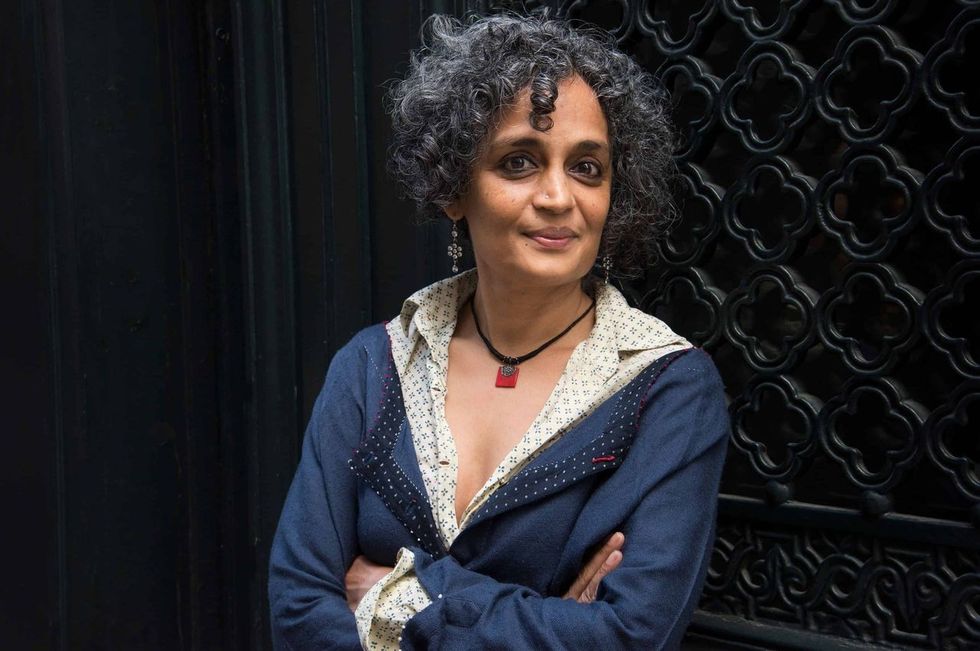 Arundhati Roy
Arundhati Roy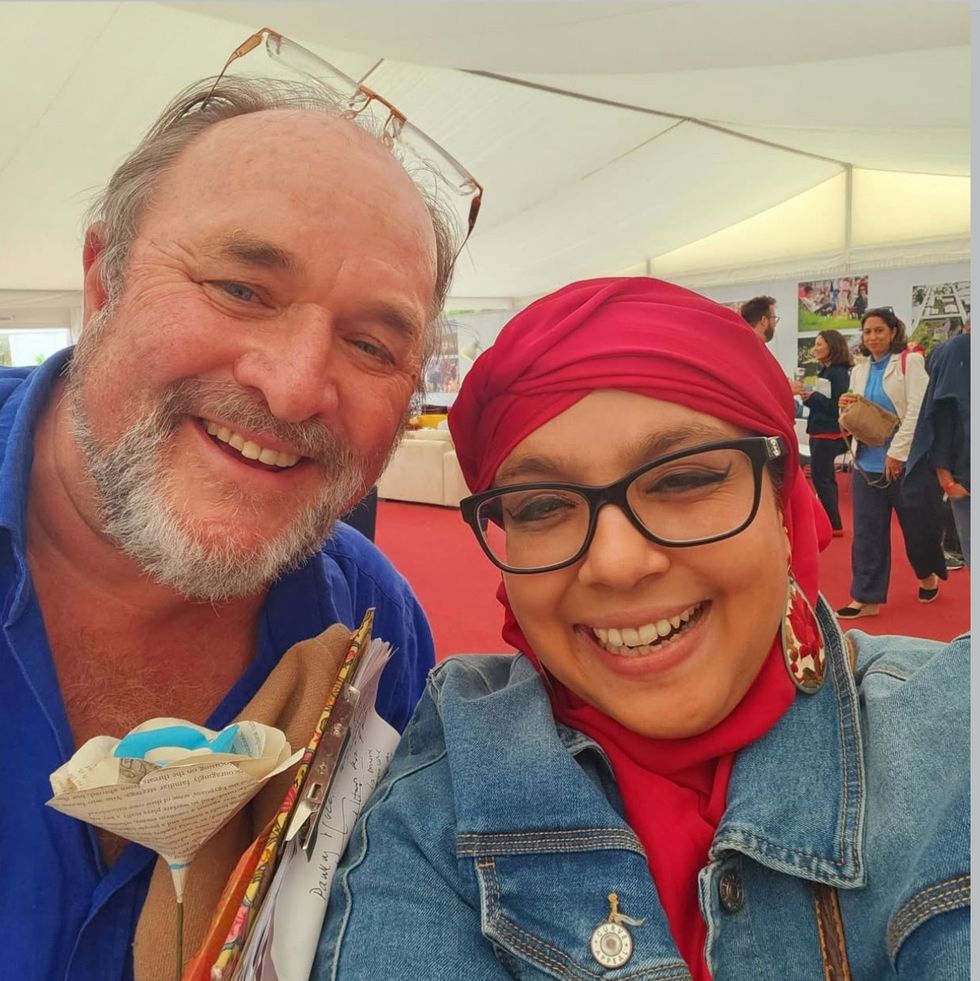 William Dalrymple and Onjali Q Rauf
William Dalrymple and Onjali Q Rauf Ravie Dubey and Sargun Mehta
Ravie Dubey and Sargun Mehta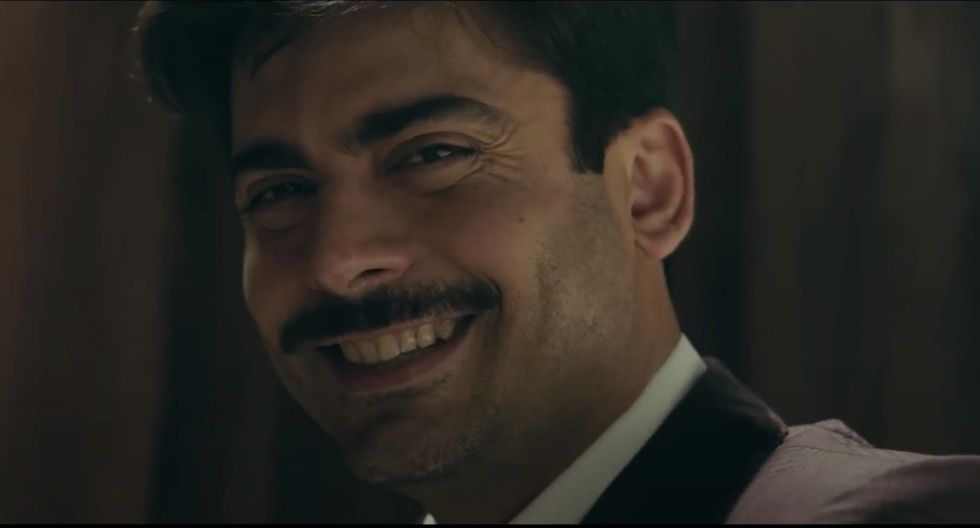 Money Back Guarantee
Money Back Guarantee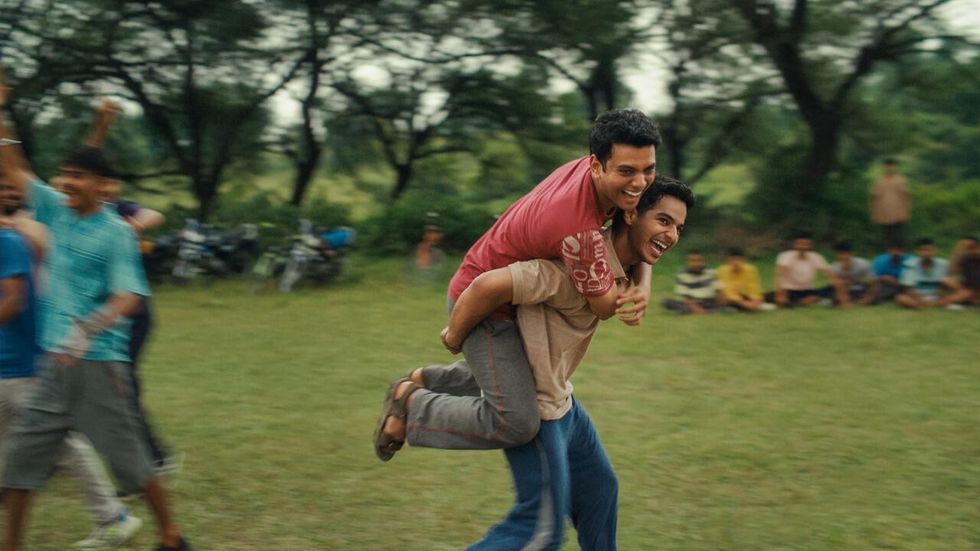 Homebound
Homebound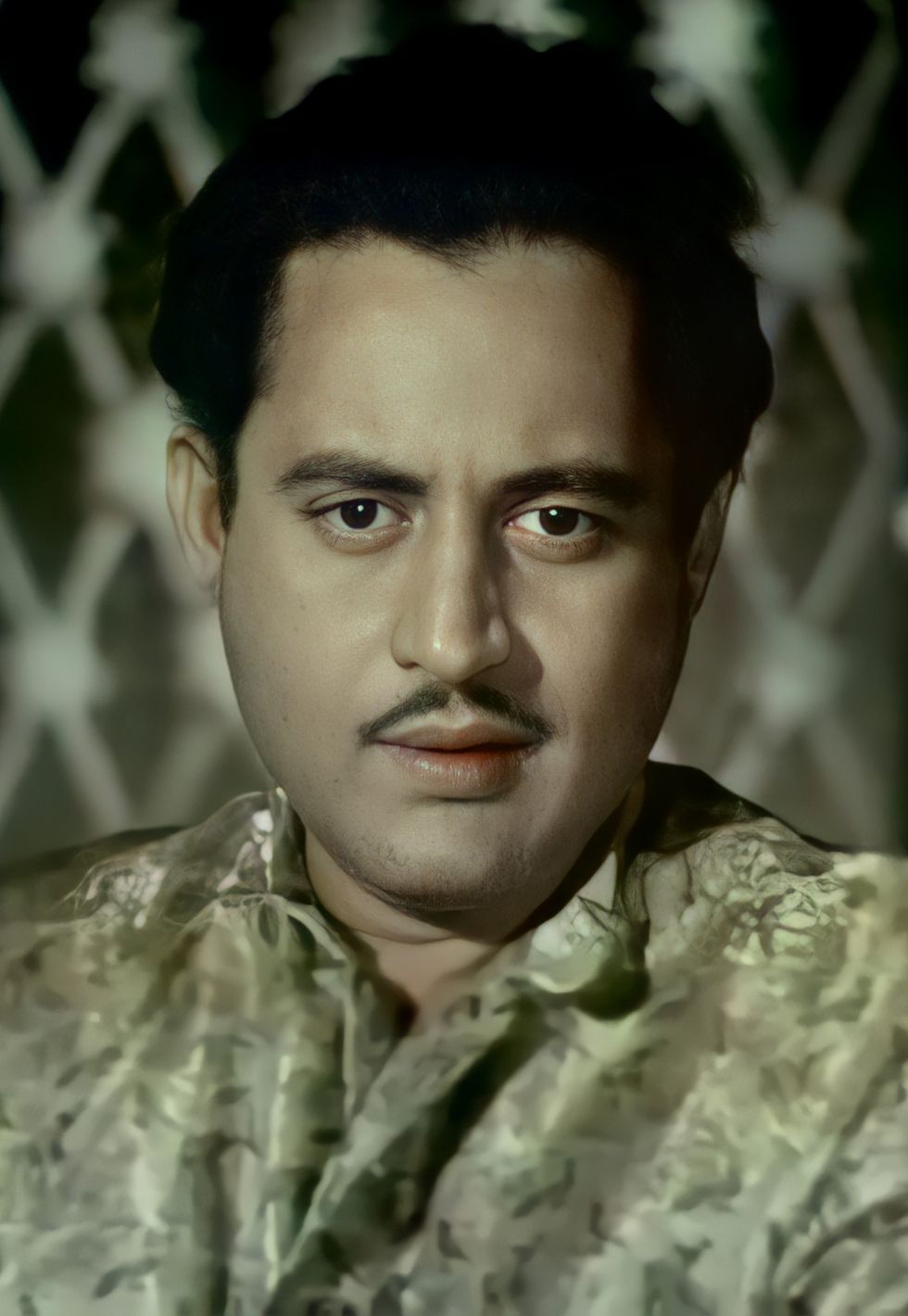 Guru Dutt in Chaudhvin Ka Chand
Guru Dutt in Chaudhvin Ka Chand Sarita Choudhury
Sarita Choudhury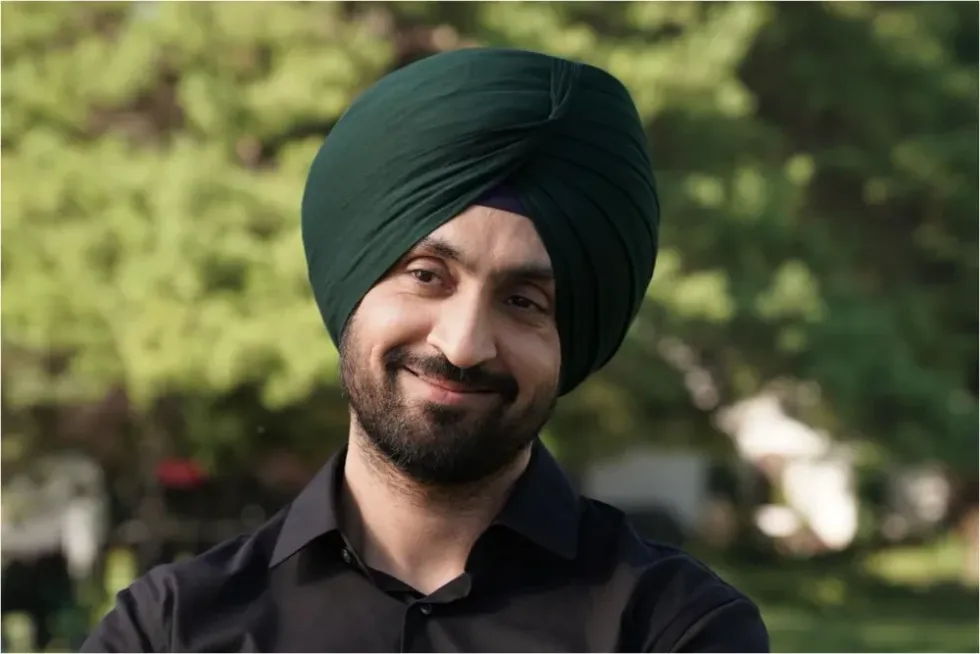 Detective Sherdi
Detective Sherdi